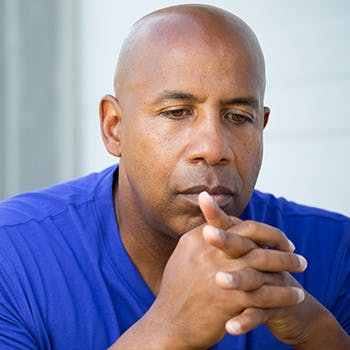Everything You Need to Know About Bleeding Hemorrhoids and Rectal Bleeding

Rectal bleeding is no joke. Whether it’s caused by bleeding hemorrhoids or a more serious issue, seeing blood in the toilet after a bowel movement is an indication that something might not be right. Below, we’ll cover the various causes, symptoms, and treatments for rectal bleeding, from bleeding hemorrhoids to colorectal cancer and beyond. Please note that this article is an educational resource and not a substitution for seeking medical counsel. If you noticed rectal bleeding or a bleeding hemorrhoid, talk to your doctor or a trusted medical professional.
Rectal Bleeding Causes: Bleeding Hemorrhoids and Beyond
While bleeding hemorrhoids are a fairly common cause of rectal bleeding, there are a few different reasons that a person might experience this symptom.1,2 The causes of rectal bleeding can vary in severity, so it’s important to consult a doctor about your symptoms and possible causes even if you think you know what’s causing the problem.
- Hemorrhoids. A bleeding hemorrhoid, which is a swollen vein located in or around the anus or lower part of the rectum, is a very common cause of rectal bleeding.1,3,4 Hemorrhoids may be painless or painful, but both types can cause rectal bleeding.1 There are two kinds of hemorrhoids—internal hemorrhoids and external hemorrhoids—and both kinds can bleed.6 Internal hemorrhoids are generally painless and can bleed during bowel movements. External hemorrhoids are typically more painful. Blood clots can form inside an external hemorrhoid, which increases pain levels even more. When this happens, it’s said that a hemorrhoid is thrombosed.4
- Anal fissure. When the anal lining is torn or cut, this results in what doctors call an anal fissure.1,3 Hard stools, frequent diarrhea, and straining during bowel movements are a few of the reasons that an anal fissure might occur. Anal fissures may provoke sudden rectal bleeding and are typically accompanied by pain at the anal opening.1
- Colon, rectal, or anal cancer. Cancer of the colon, rectum, or anus is a less common cause for rectal bleeding but one that should be taken very seriously.3 Colon cancer is a slow-growing cancer that originates in the large intestine and can affect both men and women.5 Typically, cancer develops in polyps that grow in the colon. When detected early, removing these polyps can reduce the risk of developing colon cancer.5
In addition to the above reasons, rectal bleeding may also be caused by constipation, hard stools, proctitis, rectal prolapse, trauma, colorectal polyps, ulcerative colitis, diverticulosis, and other inflammatory bowel diseases.1,3
What Are the Symptoms of Bleeding Hemorrhoids Versus Other Types of Rectal Bleeding?
Rectal bleeding caused by bleeding hemorrhoids is usually painless. The color of the blood from bleeding hemorrhoids is bright red and may be accompanied by other hemorrhoid symptoms like anal itching, discomfort or pain in in the anal region, anal swelling, or one or multiple hard lumps around the anus.4,6 You might notice the bright red blood on your toilet paper after wiping or in the toilet itself after a bowel movement.6
If you’re noticing blood coloring your stools, the color of the blood can be a clue for the type of bleeding that is occurring.1 If stools are black or tar-like in color, the bleeding is likely not from the rectum. When there is bleeding in the stomach, esophagus, or beginning of the small intestine, the blood will appear darker in the stools because it’s been digested.1 Blood that is bright red or fresh, like in the case of bleeding hemorrhoids, can usually be attributed to bleeding in the lower gastrointestinal track like the colon or rectum.1 Another potential cause of reddish-colored stools is eating beets or foods with red food coloring. This discoloration is not due to blood, and your doctor can confirm this with a stool test if necessary.1
When Should I See a Doctor?
As demonstrated above, the causes of rectal bleeding run the gamut of severity, from hard stools to colorectal cancer. If you experience any kind of unexpected rectal bleeding, it’s a good idea to talk to a doctor. If you notice fresh blood in your stools, a change in stool color, pain during bowel movements, incontinence, or lack of control over your bowel movements, contact your doctor or a trusted healthcare provider.1 If you experience a drop in blood pressure or experience unexplained weight loss, you should also seek medical attention.1 Do not attempt to treat your bleeding hemorrhoids or rectal bleeding with a topical treatment without consulting a medical professional.
We hope this article has helped you better understand rectal bleeding and its possible causes and symptoms. Whether it’s bleeding hemorrhoids or a more serious condition, rectal health is an important component of overall health. The more you educate yourself on the various aspects of rectal and anal health, the better you can support your journey to health and wellness.


